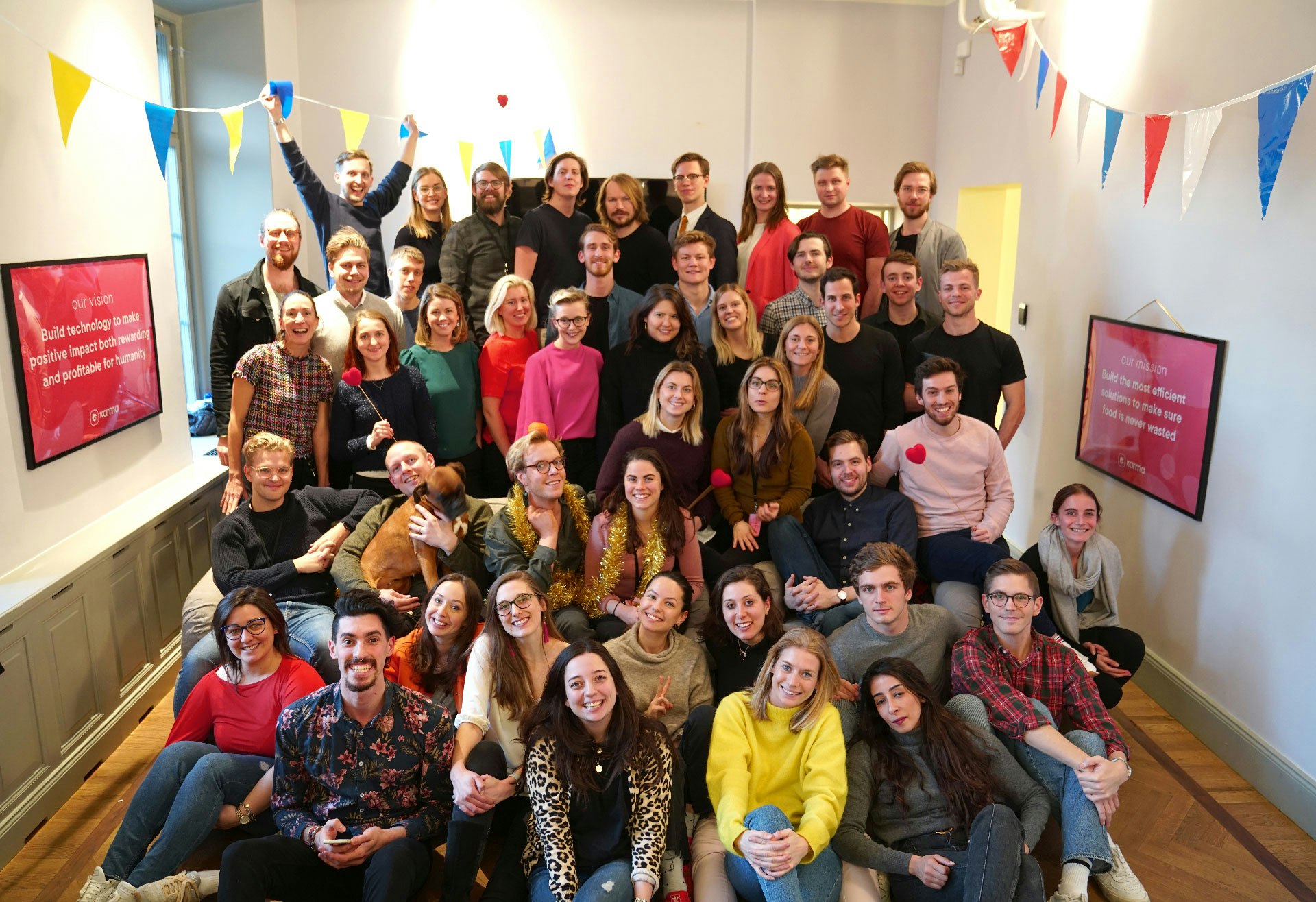A fridge in the middle of a train station might be part of the solution to the world’s food waste problem. Or so Karma, the Swedish surplus food selling app, believes.
The Swedish startup helps restaurants and supermarkets sell their surplus food — meals they would otherwise simply have thrown away at the end of the day — through an app.
The concept has taken off enough that Karma has just reached a respectable set of milestones: 1m users and more than 2m meals saved from landfill — oh, and the company is cashflow positive in Sweden.
Retailers who were uploading 50 to 70 items a day to the Karma site would double their output after we installed the fridge.
Today it announced a plan to boost growth by installing a series of 100 smart fridges across Sweden, the UK and France, after an initial trial in Sweden proved that this could dramatically increase the amount of waste food that could be saved.
The idea of the smart fridge is that, instead of customers coming to a shop at the end of the day to buy cut-price food, retailers can leave the food in a communal fridge for it to be collected. It’s designed to be a lot less time-consuming for the shops.
Hjalmar Ståhlberg Nordegren, Karma’s cofounder and chief executive, says that while food retailers like the Karma concept, there is often a limit to how much time they can spend dealing with Karma customers coming in to pick up their cut-price food.
“A smart fridge increases the ability of retailers to handle surplus — they no longer need people to be handing out the food. We found that retailers who were uploading 50 to 70 items a day to the Karma site would double their output after we installed the fridge,” says Ståhlberg Nordegren.
In fact, he says, the smart fridges increased the amount of food being rescued from shops and food outlets on average by 68%.
Moving up the food chain
The fridges also make it possible to sell surplus food from food suppliers further up the supply chain. Wholesalers, for example, do not have premises where people can pick up food but could put their surplus wares in a smart fridge in a community space.
“When we put the fridge in the central station in Stockholm so many wholesalers wanted to use it that we had to say hold up, we only have one fridge”, says Ståhlberg Nordegren. Oatly, the Swedish oat-based milk producer, is one of the suppliers that has worked with Karma to use the smart fridges.
We’ve made the market three times as big by doing this.
Around a third of all food produced for human consumption — around 1.3bn tonnes — ends up being wasted or lost every year according to the UN’s Food and Agriculture Organisation. Much of the wastage happens in supermarkets and with people throwing away excess food at home. But around 14% of the losses are estimated to happen before the food gets to supermarket shelves, so devising better ways to handle this part of the surplus is important.
“We’ve made the market three times as big by doing this,” says Ståhlberg Nordegren.
The fridges work in a similar way to e-scooters. Users pay for the food on the Karma app and get a code that unlocks the fridge. There is a slight risk, admits Ståhlberg Nordegren, that a rogue user could pay for just one item but proceed to empty out the whole fridge. But this has so far never happened in the Swedish trial, which has seen the 30 fridges installed, including one at Stockholm’s main rail station.
The first fridge in the UK has been installed at the Japan Centre in London's Westfield Shopping centre.
Karma has had a high level of adoption in Sweden so far, with some 10% of the Swedish population using the app, and around 80% of grocery stores signed up to the service. It is still struggling to gain traction in the UK and France, however, and faces increasing competition from rivals such as Denmark’s Too Good To Go.



